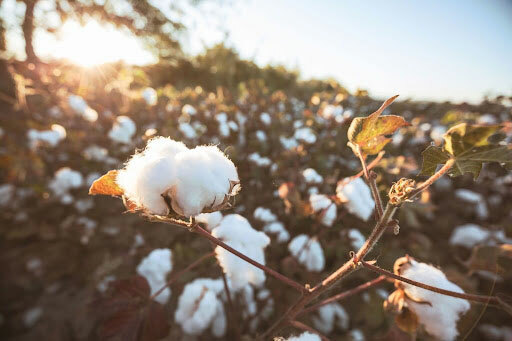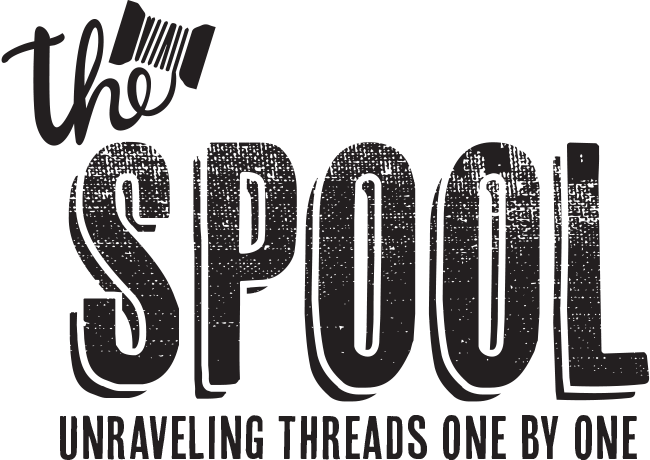
The Future of Organic Cotton
By ShirtSpace | Aug 23, 2019 | Updated Aug 15, 2023We’ve all heard of going green in terms of recycling materials, conserving water and electricity, buying cars that release fewer emissions, and choosing ethically grown foods — but what do we know about the environmental effects of what we wear? As it turns out, the way we produce our clothing is a vital point of acknowledgment; To promote a healthier environment for the planet as a whole.
Hero Image Credit: Trisha Downing
Why Invest in Organic Cotton?
Organic cotton plants are non-GMO and are free of harmful pesticides and chemicals. The chemicals in generic cotton are known to cause harm to cotton factory workers, farmers, and animals. They also tend to show up in run-off water, further spreading their destructive impact. Growing generic cotton contributes to 25% of the world’s insecticide use, and it takes nearly 5,000 gallons of water to grow only 2 lbs. of conventional cotton. This is why growing organic cotton eliminates or greatly reduces many of these concerns.
Source Accountability With Cotton Production
Consumers are increasingly demanding transparency in the clothing industry, and this includes knowing where their clothes come from and how they were made. Organic cotton is typically produced in a more transparent and traceable supply chain than conventional cotton, as it is often grown in smaller, more closely monitored farms. This allows brands to provide more information to consumers about the origin of their organic cotton, which can help to build trust and loyalty.

Photo Credit: Envato by Galyna_Andrushko
Reasons to Avoid Standard Cotton
How does generic cotton affect you personally? This is another crucial point to think over. When a finished cotton product is worn on the body, the cotton’s embedded chemicals may even end up causing skin irritation, rashes, or other symptoms. Typical cotton production is an outdated trend that more and more companies are trying to step away from. At ShirtSpace, we are proud to be among those looking for healthier, happier alternatives when it comes to cotton apparel. Upgrade your standard cotton tee today!

Image Credit: Dimaberlin
Benefits of Growing Cotton Organically
Organic cotton uses less water to grow and, in general, is grown with earth consciousness in mind. It’s better for the environment, the workers, and for the wearers. Start looking for cotton t-shirts and cotton blend shirts from organic sources to take the next step toward going green. Ultimately, choosing organic cotton for your shirts and apparel is a great choice in both the now and in the long run. Look for combed and ringspun cotton for incredibly soft t-shirts that don’t have that stiff and scratchy feel that cheaper cotton can sometimes get.
The Growing Supply and Demand for Organic Cotton
Organic cotton is becoming more widely available. In a trend that’s set to continue, more and more clothing brands are committing to using organic cotton in their products. According to a report by Organic Trade Association, the global production of organic cotton increased by 31% in 2019, reaching 505,475,874 lbs. This growth is expected to continue, with some estimates suggesting that organic cotton production could reach 551,155,655 lbs. by 2025.
Organic Cotton Here, There, and Everywhere!
Organic cotton is also becoming more mainstream. It is no longer just niche or high-end clothing brands that are using organic cotton. More affordable and mainstream brands are also using organic cotton in their products, making it accessible to a wider audience. This is partly due to the increasing demand for sustainable and ethical fashion in popular culture, as well as the availability to offer organic cotton at lower prices due to increased production.

The Innovative World of Cotton Production
Organic cotton apparel is seen as more progressive and mindful. Traditionally, organic cotton has been associated with plain and simple styles, but this is changing. As more brands adopt organic cotton, they are pushing the boundaries of what is possible with the fabric. For example, organic cotton can now be blended with other sustainable materials, such as recycled polyester, creating innovative and eco-friendly fabrics. Organic cotton is also being used in new ways, such as in activewear and performance clothing.
The Bright Future of the Cotton Industry
The future of organic cotton in the clothing industry is closely linked to the future of sustainable fashion as a whole. As consumers become more aware of the impact of their choices, there is a growing demand for sustainable and ethical fashion, and lucky savvy eco-conscious brands have taken note. Brands like econscious, Allmade and SoftShirts are providing organic t-shirts, sweatshirts, and bags to elevate your wardrobe or storefront.
Organic cotton is just one aspect of this movement, but it is an important one. It provides a sustainable alternative to conventional cotton farming practices, which are known to be highly polluting and harmful to the environment. While there are still challenges to be addressed, such as the cost and availability of organic cotton, the future looks promising for this sustainable and ethical fabric.


Leave a Comment
We take your privacy seriously and will not share or publish your email address.
This site is protected by reCAPTCHA and the Google Privacy Policy and Terms of Service apply.